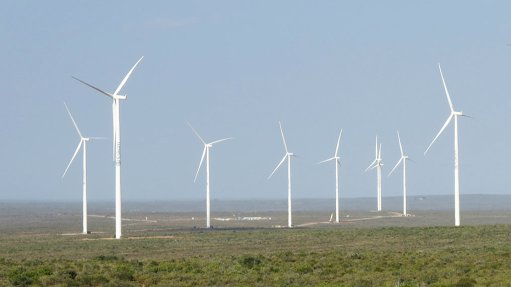Africa’s multiple transitions
The issue of transitions in Africa is not singular; rather, the continent is experiencing multiple, convergent transitions. Addressing the energy transition, therefore, cannot be done in isolation but must be done alongside progress in other areas.
Often, energy transition advocates – such as those who want us to get off gas – can be blinded by ideology. They may fail to understand what’s going on in the background, as a result of which they stick to single-minded templates imported from outside instead of tactical innovation.
For example, highly indebted countries, most of which are in Africa, are still struggling with the aftermath of the Covid-19 crisis. The burden of debt makes their situation even more challenging, as they may need to dig more extractive holes, as it were, before they get out of the current one they are in. They are between a rock and a hard place.
Take Zambia as a case in point. It recently concluded a successful debt refinancing deal under the Common Framework that has been established by the G20. Zambia has linked its debt resolution efforts with an expansion in investment in new copper mines.
Kenya’s President William Ruto went hand-in-cap to the US, seeking support from the US National Treasury to underwrite a sovereign bond – the aim of which was to reduce the East African country’s debt service costs. When Ruto entered office in August 2022, Kenya was already in a crisis, with an external debt amounting to about $80-billion, equivalent to 67% of its GDP.
In response to this dire situation, Ruto introduced a Finance Bill aimed at raising taxes, reducing subsidies and cutting government expenditure to restore fiscal consolidation. This unleashed an unprecedented social crisis, as the reforms hit households’ pockets, thereby provoking a strong public reaction.
The controversial Bill proposed taxes on basic items, including a 16% sales tax on bread and a 25% duty on cooking oil, as well as an eco levy, a tax on specialised hospitals and higher import fees.
The issue of debt overhang also reflects a broader problem: African governments are not sufficiently engaging with the issue of transitioning from consumption-driven growth to long-term productive capital investments. Achieving this shift requires a concerted economic plan to improve linkages between new forms of capital formation and, over time, reduce dependence on extractive industries.
Commodities tend to go through boom-and-bust cycles. The booms can be a source of moral hazard and elite capture, as the steady accumulation of foreign reserves from commodity exports can fuel imports – some necessary and others profligate consumptive pursuits.
Debt can be likened to a gambler’s curse: the more you lose, the more you believe the next round will bring you better luck. No economy can survive on such a gambler’s wager, where Peter borrows, only to pay Paul.
There is also a forced transition process driven by the imposition of Carbon Border Tax Adjustment Mechanisms (CBAMs). A study funded by the African Climate Fund and conducted by the LSE Firoz Lalji Institute for Africa shows that CBAMs will have adverse economic and industrial development effects on South Africa, Nigeria, Egypt and other countries, given that CBAMs function more as trade protectionist measures by the EU than solely advancing climate objectives.
There is no climate win here for Africa. As the Guyanese activist academic, Walter Rodney, would have opined, this is another case of “How Europe underdeveloped Africa”.
Africa’s debt-to-GDP ratios have increased significantly in the past decade. In the case of South Africa, the debt-to-GDP ratio has surpassed 70%. This rising debt burden will influence the country’s ability to effectively pursue its decarbonisation goals.
For instance, the National Treasury is reluctant to assume additional contingent liabilities in the form of State guarantees for clean energy technology. The guarantees were crucial in reducing the cost of capital for renewables. On the continent, debt guarantees and scaling finance for energy transitions are interlinked.
High debt service costs, rising inflation and low credit ratings will ultimate determine the pace and nature of the energy transition process.
The transition out of debt is a crucial element of governments’ ability to generate resources that can not only ensure continued support for essential social programmes but also soften the impact of extreme weather events on livelihoods
Currently, Malawi is in the throes of a systemic climate risk transition. Cyclone Freddy has had a significant impact on the country’s economy, causing extensive damage to infrastructure, homes and agricultural land. According to the Malawi government, the total impact of Cyclone Freddy in 2023 is estimated at $506.7-million.
The Malawi government estimates the macroeconomic impact of Cyclone Freddy at $36.4-million in production losses, which is equivalent to a 0.5% reduction in real GDP. The Annual Public Debt Report released in March 2023 shows that the country’s total public debt stood at $9.16-billion, or 75% GDP, marking a 38% increase from 2022.
Africa is also undergoing a transition as forces reshape the global order. Africans find themselves caught between geopolitical rivalries while striving for their own internal political and economic settlements. African discord is often an invitation for foreign intervention. We see this playing out in divided Sudan, Libya and the Sahel, among other regions.
South Africa’s efforts to renew the Africa Growth and Opportunity Act, which gives certain South African exports preferential access to the US market, should also be viewed through a geopolitical lens. South African diplomats have faced a push-back on the Hill in Washington DC, owing to concerns over South Africa’s “too friendly” foreign relations with China and Russia.
Decarbonisation or clean energy transitions in Africa cannot be achieved in isolation; they must be considered within the broader context of other transitions – with issues such as the debt overhang, for instance, having to be settled first, before aligning with global climate objectives. Climate action is more effective when political and economic dynamics are thoroughly understood, rather than relying on half-blind tactics.
Article Enquiry
Email Article
Save Article
Feedback
To advertise email advertising@creamermedia.co.za or click here
Press Office
Announcements
What's On
Subscribe to improve your user experience...
Option 1 (equivalent of R125 a month):
Receive a weekly copy of Creamer Media's Engineering News & Mining Weekly magazine
(print copy for those in South Africa and e-magazine for those outside of South Africa)
Receive daily email newsletters
Access to full search results
Access archive of magazine back copies
Access to Projects in Progress
Access to ONE Research Report of your choice in PDF format
Option 2 (equivalent of R375 a month):
All benefits from Option 1
PLUS
Access to Creamer Media's Research Channel Africa for ALL Research Reports, in PDF format, on various industrial and mining sectors
including Electricity; Water; Energy Transition; Hydrogen; Roads, Rail and Ports; Coal; Gold; Platinum; Battery Metals; etc.
Already a subscriber?
Forgotten your password?
Receive weekly copy of Creamer Media's Engineering News & Mining Weekly magazine (print copy for those in South Africa and e-magazine for those outside of South Africa)
➕
Recieve daily email newsletters
➕
Access to full search results
➕
Access archive of magazine back copies
➕
Access to Projects in Progress
➕
Access to ONE Research Report of your choice in PDF format
RESEARCH CHANNEL AFRICA
R4500 (equivalent of R375 a month)
SUBSCRIBEAll benefits from Option 1
➕
Access to Creamer Media's Research Channel Africa for ALL Research Reports on various industrial and mining sectors, in PDF format, including on:
Electricity
➕
Water
➕
Energy Transition
➕
Hydrogen
➕
Roads, Rail and Ports
➕
Coal
➕
Gold
➕
Platinum
➕
Battery Metals
➕
etc.
Receive all benefits from Option 1 or Option 2 delivered to numerous people at your company
➕
Multiple User names and Passwords for simultaneous log-ins
➕
Intranet integration access to all in your organisation

















